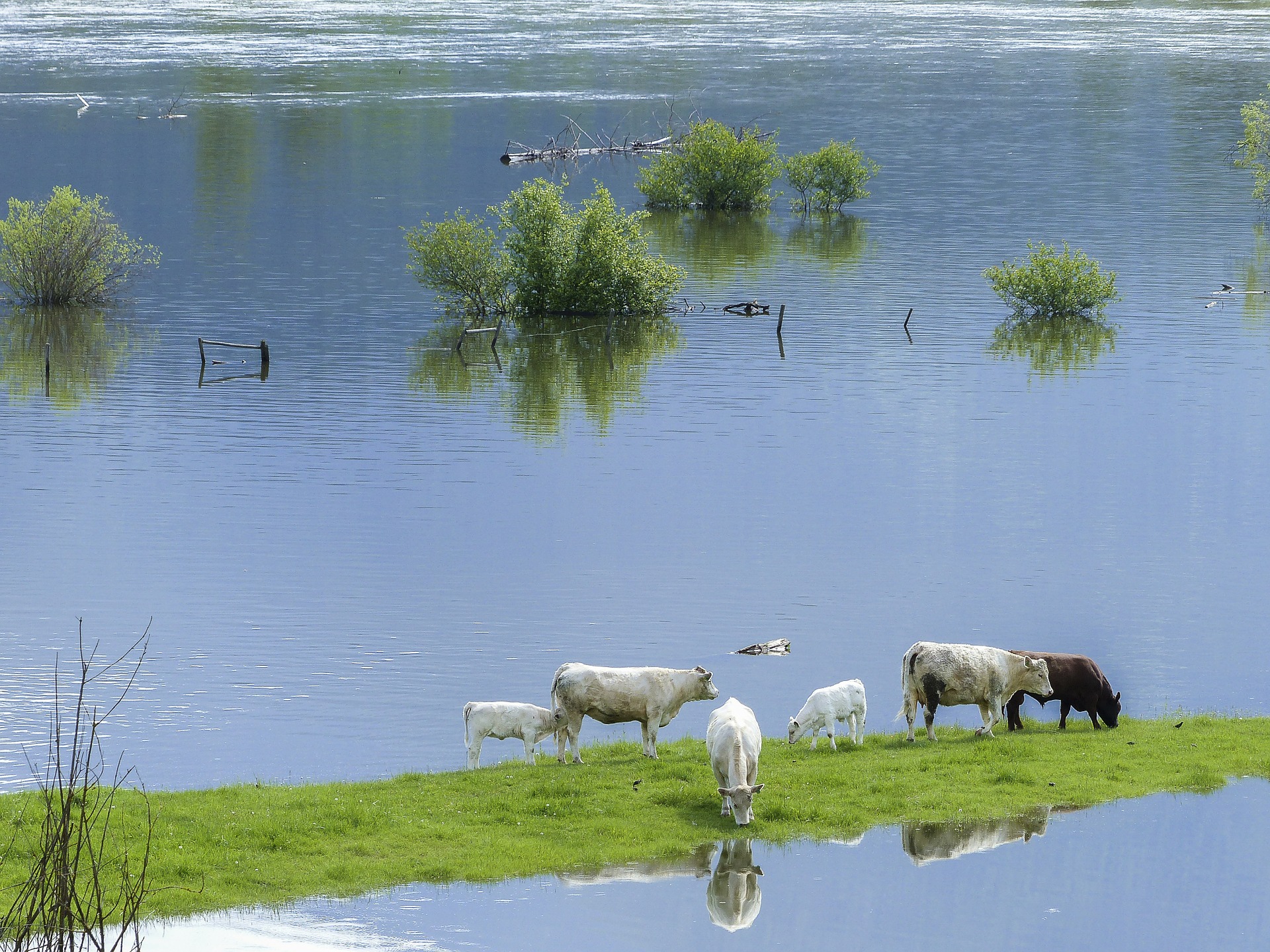My response to the Flooding Manifesto
06/03/2017

Flooding in the UK continues to cause damage and suffering on a frequent basis with substantial costs for people, businesses, infrastructure and agriculture. And when you factor in climate change and the demand for land for housing, we can fully expect flooding to be an ongoing and increasingly expensive concern.
In response, the National Farmers’ Union’s Flooding Manifesto was recently published. This suggests that if the Government is to manage future flood risk effectively, then a long-term strategic plan that is designed to cope with extreme weather events and incorporate a whole catchment approach to management decisions and interventions is required. The manifesto also highlights the key role that farming and natural flood management interventions can play in flood management.
What are the options?
Agricultural land retains water, thereby reducing the risk of flooding in urban areas. However, the value of its contribution to flood management is not well recognised. Current funding prioritises concentrations of people and property, with less focus put on protecting rural areas and agricultural land. They state that this in-balance must be addressed.
Natural Flood Management (NFM) strategies, when combined with other flood retention measures, could be a way of reducing peak flows in both rural and urban areas. Further research is required to understand and quantify their benefits better both as standalone interventions and when clustered with other flood risk management approaches. This is key to understanding where and which NFM interventions to implement across catchments to maximise flood risk reduction.
It is also necessary to quantify the consequences NFM interventions have on agricultural land, in terms of maintenance and the funding to implement the interventions successfully.
Next steps
With the frequency of extreme events due to a changing climate on the rise, clearly a more integrated catchment based approach is required to reduce flood risk. There are many parties that have a role to play to arrive at fit for purpose solutions going forward. These include insurance companies, local planning authorities, water companies, land managers, emergency responders, government agencies/government, to name a few. Without an integrated financial and catchment management approach to flooding, that accounts for the roles and interactions of all parties involved, flooding is likely to continue to cause disruption and misery.
We are doing our bit at Cranfield University to address this gap in knowledge and we will continue to work with and support organisations, agencies and businesses, as well as inform and advise policy makers and governments on best practice backed up by hard science. There are significant challenges ahead, but the cost of not working together to find balanced solutions is more misery for many people.
Want to read more about my work?
https://www.cranfield.ac.uk/case-studies/research-case-studies/drone-watch
https://www.cranfield.ac.uk/research-projects/drones-catastrophe-relief
https://www.cranfield.ac.uk/research-projects/drones-jellyfish
Categories & Tags:
Leave a comment on this post:
You might also like…
Keren Tuv: My Cranfield experience studying Renewable Energy
Hello, my name is Keren, I am from London, UK, and I am studying Renewable Energy MSc. My journey to discovering Cranfield University began when I first decided to return to academia to pursue ...
3D Metal Manufacturing in space: A look into the future
David Rico Sierra, Research Fellow in Additive Manufacturing, was recently involved in an exciting project to manufacture parts using 3D printers in space. Here he reflects on his time working with Airbus in Toulouse… ...
A Legacy of Courage: From India to Britain, Three Generations Find Their Home
My story begins with my grandfather, who plucked up the courage to travel aboard at the age of 22 and start a new life in the UK. I don’t think he would have thought that ...
Cranfield to JLR: mastering mechatronics for a dream career
My name is Jerin Tom, and in 2023 I graduated from Cranfield with an MSc in Automotive Mechatronics. Originally from India, I've always been fascinated by the world of automobiles. Why Cranfield and the ...
Bringing the vision of advanced air mobility closer to reality
Experts at Cranfield University led by Professor Antonios Tsourdos, Head of the Autonomous and Cyber-Physical Systems Centre, are part of the Air Mobility Ecosystem Consortium (AMEC), which aims to demonstrate the commercial and operational ...
Using grey literature in your research: A short guide
As you research and write your thesis, you might come across, or be looking for, ‘grey literature’. This is quite simply material that is either unpublished, or published but not in a commercial form. Types ...






